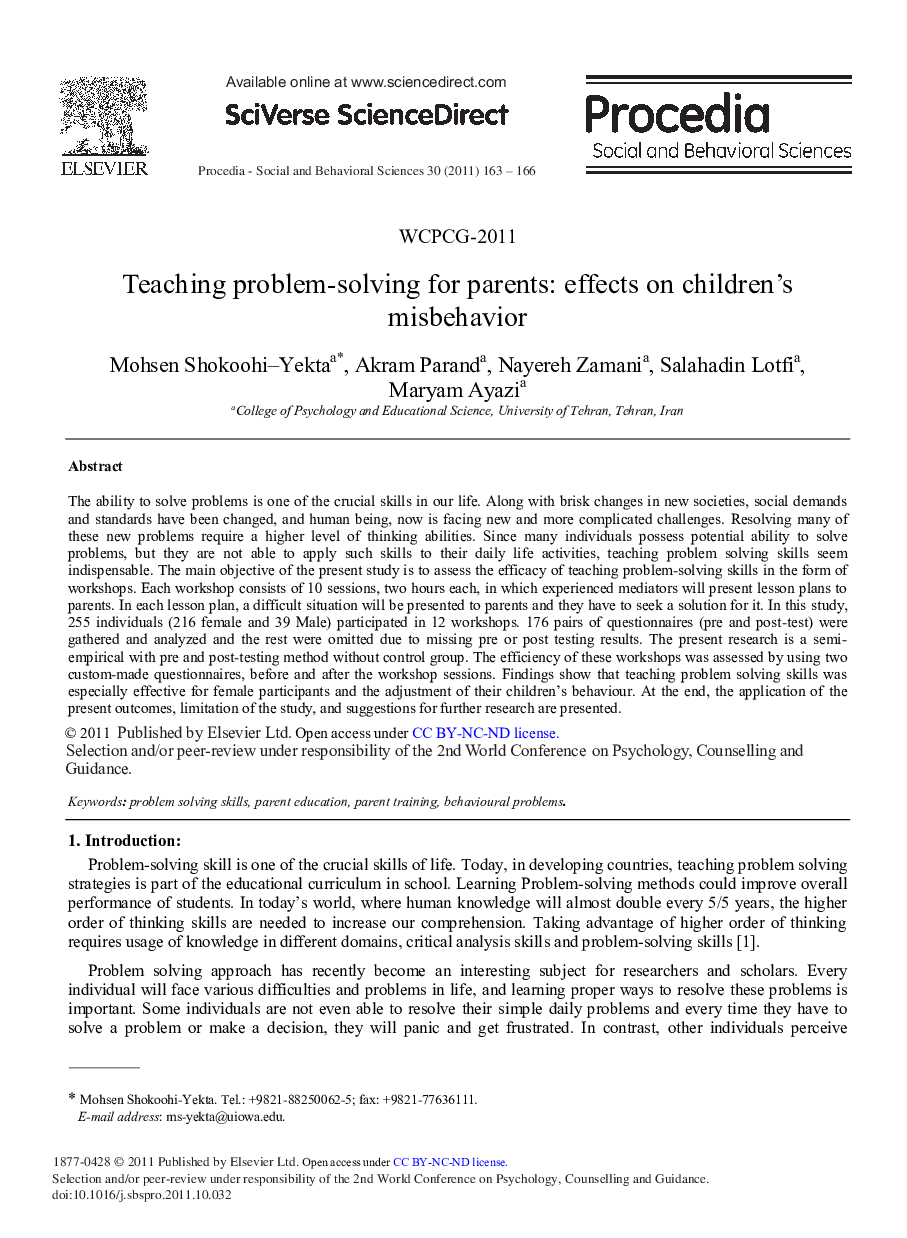| کد مقاله | کد نشریه | سال انتشار | مقاله انگلیسی | نسخه تمام متن |
|---|---|---|---|---|
| 1122895 | 1488529 | 2011 | 4 صفحه PDF | دانلود رایگان |

The ability to solve problems is one of the crucial skills in our life. Along with brisk changes in new societies, social demands and standards have been changed, and human being, now is facing new and more complicated challenges. Resolving many of these new problems require a higher level of thinking abilities. Since many individuals possess potential ability to solve problems, but they are not able to apply such skills to their daily life activities, teaching problem solving skills seem indispensable. The main objective of the present study is to assess the efficacy of teaching problem-solving skills in the form of workshops. Each workshop consists of 10 sessions, two hours each, in which experienced mediators will present lesson plans to parents. In each lesson plan, a difficult situation will be presented to parents and they have to seek a solution for it. In this study, 255 individuals (216 female and 39 Male) participated in 12 workshops. 176 pairs of questionnaires (pre and post-test) were gathered and analyzed and the rest were omitted due to missing pre or post testing results. The present research is a semi- empirical with pre and post-testing method without control group. The efficiency of these workshops was assessed by using two custom-made questionnaires, before and after the workshop sessions. Findings show that teaching problem solving skills was especially effective for female participants and the adjustment of their children's behaviour. At the end, the application of the present outcomes, limitation of the study, and suggestions for further research are presented.
Journal: Procedia - Social and Behavioral Sciences - Volume 30, 2011, Pages 163-166